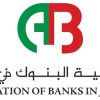
The Center for Women’s Studies in Society at the Hashemite University organized a session on “Youth and Women in the Jordanian Banking Sector”, in which Dr. Maher Al-Mahrouq, Director-General of the ABJ lectured, via the Microsoft Times platform, on Wednesday, May 5, 2021.
The session and discussion were moderated by the Director of the Center, Dr. Hadeel Al-Maaytah. The session, which lasted for an hour and a quarter, was attended by more than 90 participants including students and faculty members of the Hashemite University.
Al-Mahrouq reviewed key banking indicators in the Jordanian banking sector noting that banks in Jordan amount to 23 distributed into 13 Jordanian commercial banks, 4 Islamic banks and 6 foreign commercial banks. He indicated that the banks’ branch network exceeds 862 branches and 76 offices spread throughout the Kingdom in addition to more than 2038 ATMs.
Al-Mahrouq said that banks’ main indicators witnessed a remarkable growth noting that the volume of banks’ assets amounted to 57.4 billion Dinars at the end of February while total deposits amounted to 37.3 billion Dinars and credit facilities granted by banks amounted to 29.2 billion Dinars. Al-Mahrouq added that comparing the values of these indicators with the size of the Jordanian economy shows the depth of the Jordanian banking sector and its great importance to the economy, as bank assets constitute 185% of GDP, deposits constitute 120% of the output while banks facilities constitute 94% of GDP. He also reviewed banks financial strength indicators stressing the high capital adequacy ratios and liquidity ratios noting that the non-performing debt ratios were low and within safe levels.
With regard to the gender distribution of bank employees, Al-Mahrouq confirmed that there is a continuous development in the participation rate of both genders in the banking sector to be among the highest in the economy bringing the percentage of female workers from about 30% in 2004 to approximately 35.5 % in 2019. He pointed out to the percentage of employees under 25 years of age which constituted about 7.3% at the end of 2019, of whom 3.3% are females and 4% are males. The percentage of workers between the ages of 25 and 39 was about 68.5%, of whom 25.8% were females, thus making the youth group who are under 40 the largest one of the total number of employees. Employees between the ages of 40 – 59 years constitute 23.8%, of whom 6.3% are women, and the percentage of employees over the age of 60 who are still at work is 0.4%.
Al-Mahrouq highlighted the many development opportunities for youth and women in banks, as banks work to qualify their staff by holding training programs at giving employees a comprehensive view of banking work. Al-Mahrouq added that with the aim of improving bank employees’ skills and develop their capabilities. Banks annually organize a number of training courses with the number of trained males amounting to 33,259 while the number of trained females reached 17,955 during 2019.
He indicated that banks have many points of attraction encouraging young people and women to engage in banking pointing out that banks provide their employees with many advantages such as salaries and incentives that compete with other sectors, job stability, qualification opportunities, creativity motivation, banks’ commitment to labor laws and regulations that preserve employees’ rights including women and banks’ internal systems that guarantee equal opportunities and gender equality. He stressed that the banking work environment is characterized as a decent one equipped with all the needs that provide women and youth with comfort.
Al-Mahrouq added that banks are seeking to employ holders of scientific degrees and those with the appropriate specializations for vacancies in addition to the qualified competencies and those who are capable of development and progress to ensure the selection of the most suitable person for the right place.
Al-Mahrouq stressed the importance of young men and women wishing to work for banks to always strive to develop their scientific and practical skills and to be ambitious and eager to learn in addition to adhering to work ethics. He stressed the importance of keeping pace with the development taking place in various fields of banking work on an ongoing basis, especially in light of the rapid developments in this field, the supervisory and banking practices developments and what we witnessed recently from the emergence of many concepts, including cybersecurity, financial technology (Fintech) and digital banking services.





